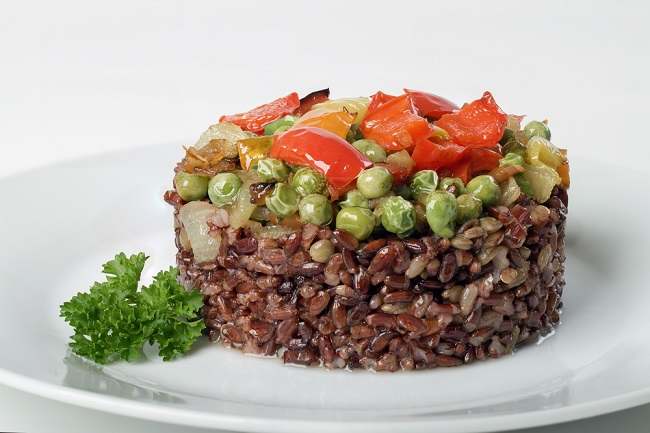The rotavirus vaccine is a vaccine to prevent rotavirus infection which can cause vomiting or gastroenteritis. The Rotavirus vaccine contains live, attenuated rotavirus.
Rotavirus vaccine works by triggering the immune system to produce antibodies that can fight rotavirus when the virus attacks.

There are two types of Rotavirus vaccines in Indonesia, namely monovalent and pentavalent Rotavirus vaccines. The pentavalent rotavirus vaccine contains five types (strains) of rotavirus, while the monovalent rotavirus vaccine contains only one type of rotavirus.
Rotavirus vaccine trademarks: Rotarix (monovalent), RotaTeq (pentavalent)
What's that Rotavirus Vaccine
| group | Prescription drugs |
| Category | Vaccine |
| Benefit | Prevent rotavirus infection that causes gastroenteritis or vomiting |
| Used by | Children, up to 6 months of age for monovalent Rotavirus vaccine, and 8 months of age for pentavalent Rotavirus vaccine |
| Rotavirus vaccine for pregnant and lactating women | Category C: Animal studies have shown adverse effects on the fetus, but there are no controlled studies in pregnant women. The drug should only be used if the expected benefit outweighs the risk to the fetus. It is not known whether the Rotavirus vaccine is absorbed into breast milk or not. This vaccine is not for use by adolescents and adults, so pregnant women and breastfeeding mothers should not use it. |
| Drug form | Suspension or solution |
Warning Before Receiving Rotavirus Vaccine
Rotavirus vaccine is a type of vaccine derived from live, attenuated viruses. There are several things to consider before your child is vaccinated with the Rotavirus vaccine, namely:
- Tell the doctor about the history of allergies that the child has. Rotavirus vaccine should not be given to children who are allergic to the ingredients in this vaccine.
- Tell the doctor if your child has a weakened immune system due to chemotherapy, radiotherapy, use of immunosuppressant drugs, or an illness, such as: severe combined immunity (SCID).
- Tell the doctor if your child has ever had intussusception, spina bifida, or a congenital bladder disease, such as: bladder exstrophy,
- Tell the doctor if your child is taking any medications, supplements or herbal products.
- Immediately see a doctor if your child has an allergic reaction or serious side effect after giving the Rotavirus vaccine.
Rotavirus Vaccine Dosage and Schedule
Rotavirus vaccine is one of the vaccines included in the immunization program of choice. In accordance with the immunization schedule issued by the Indonesian Pediatric Association (IDAI), Rotavirus vaccine can be given to infants from 6 weeks of age to a maximum of 6-8 months of age, depending on the type of vaccine given.
The following is the dose and schedule for giving the Rotavirus vaccine, which is divided by the type of vaccine:
Monovalent Rotavirus Vaccine
Monovalent rotavirus vaccine is given twice. The first dose is given when the child is 6–14 weeks old and the second dose is given at least 4 weeks later. The second dose can also be given when the child is 16 weeks old or at the latest when he is 24 weeks old.
The monovalent rotavirus vaccine is given orally or by mouth. The dose given in one administration is 1.5 ml.
pentavalent rotavirus vaccine
The pentavalent rotavirus vaccine was administered 3 times. The first dose is when the child is 6–14 weeks old. The second and third doses are given 4–8 weeks apart after the previous vaccine. The deadline for giving the third dose is when the child reaches 32 weeks of age.
The pentavalent rotavirus vaccine is also given by mouth. The dose given in one administration is as much as 2 ml.
How to give the Rotavirus Vaccine
Rotavirus vaccine will be given directly by a doctor or medical officer under the supervision of a doctor at the vaccination service. Before giving the vaccine, the doctor or medical officer will conduct an examination to make sure the child is in good health and ready to be vaccinated.
If the child has a fever during the examination, vaccination can be postponed until the condition improves. Meanwhile, if the child only has a mild illness, such as a cold, vaccination can still be done.
Rotavirus vaccine is given by dripping slowly into the child's mouth. This is to prevent the vaccine from being spit out again. To reduce the risk of the vaccine being vomited again, the vaccine should be given before the baby suckles.
Rotavirus can be found in the feces of children who have recently undergone Rotavirus vaccination. To prevent transmission of the virus through children's feces, always wash your hands after handling a child's diaper. As much as possible, avoid having children close to or touching people who are sick, for up to 15 days after receiving the vaccine.
Make sure your child gets the entire prescribed dose of vaccine. If your child misses a dose, go to the doctor or nearest health facility immediately to receive the missed dose.
Rotavirus Vaccine Interactions with Other Drugs
If the Rotavirus vaccine is given with immunosuppressant drugs, including corticosteroid drugs, the effectiveness of this vaccine may be reduced. To anticipate the effects of interactions between drugs, tell your doctor about any drugs, supplements, or herbal products you are taking before receiving this vaccine.
Side Effects and Dangers of Rotavirus Vaccine
Rotavirus vaccine is safe for children and rarely causes side effects. Common side effects that can occur after administering the vaccine include fussiness, restlessness, vomiting, and diarrhea.
The side effects above are generally mild and can heal without treatment. Check with your doctor if these side effects don't go away or get worse. You should also see a doctor immediately if an allergic reaction occurs after using the rotavirus vaccine.
Although rare, giving Rotavirus vaccine to children can be at risk of causing more serious side effects, such as intussusception. Go to the doctor immediately if the baby has bloody stools, vomits, or cries continuously after receiving the MR vaccine.









